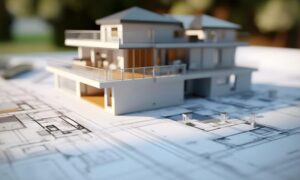
If you are looking to buy a home, chances are you already have a working list of your requirements – and the chances are those requirements include a preference for either the city or the suburbs. In fact, most often buyers preferring one will not even widen their search to include the other. The city and the suburbs are like night and day, right? You either want the conveniences and amenities of the city, or the space and larger property size of the suburbs, right?
CityHome Collective, a professional real estate brokerage specializing both in luxury homes and condos, recommend that you give the alternative option a little more credence. It naturally depends on what city and what suburbsyou are actually talking about (sometimes, these two categories can blend into each other in certain areas). And even if you have a pretty solid idea of what you want, you could well discover it where you didn’t expect.
City vs. Suburban Properties
Generally speaking, the main difference between city and suburban properties is in the style those properties normally take. When making this comparison, people are most often talking about city units (apartments, condos, townhouses etc.) and suburban houses. We are all familiar with the vast sprawling suburban housing estates that can be found on the outskirts of cities across the nation, and that is probably why, when looking for a family home, most people turn to the suburbs.
Similarly, when looking for a convenient unit for single or couple buyers, the city is the better place. Advantages here include more amenities, a greater ease of travelling around, and a greater proximity to places of work.
However, a very important thing to bear in mind is that, very often, one can find smaller units in the suburbs and – indeed – houses in the city. It all depends on how these areas are planned and this is why crudely restricting your search to “city” or “suburb” might not be the best idea.
Transport
Transport is also a key factor. If you live in the suburbs, then the amenities of the city could well be available to you – after a short journey. It is very well worth considering what the drive time from a suburban estate into the heart of a city is. It’s also a very good idea to investigate whether public transport can carry you between the two areas with any degree of ease. This is why many people who purchase in the suburbs also tend to work in the cities. The very presence of an easy commute can make the distinction between the two areas less important.
Turn to the Professionals
All these considerations could well see you purchasing a home where you didn’t initially expect to, simply because your perceived drawbacks of either the city or the suburbs don’t actually matter so much. Nevertheless, this is a complicated thing to work out effectively, as it requires not only a detailed knowledge of the city or suburban locale in question but also a knowledge of what the market is like in each of these specific areas.
Accordingly, the best course of action is to come up with a clear idea of what you want (both in terms of the property and the location) and then to take that to a professional real estate brokerage. You never know, you could find a large house or an estate with open space inside the city, or you could find a small apartment with easy access to everything you need in the suburbs. The distinction can get blurred – but the professionals will set you right.




